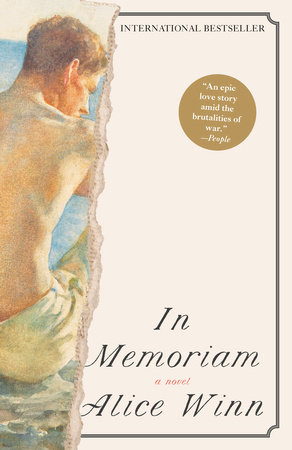More on this book
Community
Kindle Notes & Highlights
Ellwood’s England was magical, thought Gaunt, picking his way around nettles. But it wasn’t England. Gaunt had been to the East End once, when his mother took him to give soup and bread to Irish weavers. There had been no cricket or hunting or ices, there. But Ellwood had never been interested in ugliness,
i love the way alice winn explores the price and realism behind england's beauty. and how ellwood's character represents its disintegration during the war.
“Pritchard Major made him lick his shoes in front of the Upper Sixth,” said West. Pritchard twisted his hair. “Ouch! Lay off!” “I told you that in confidence!” “Did you really lick his shoes? Which ones?” asked Ellwood. “What do you mean, which ones? Why should that make a difference?” “No, that’s fair,” said West. “I wouldn’t mind nibbling on a shoelace if it was from someone’s Sunday best.” “It’s important to have standards,” agreed Roseveare.
“It’s frightening to be hated,” said Maud now.
(Things have been glorious with the Ardents. Every night we meet and roam the school like stray cats. We smoke long pipes on the roof of the Fletcher and Grimsey is teaching us to fence.)
What I meant to say is this: You’ll write more poems. They are not lost. You are the poetry. Yours, Gaunt
I actually believed that the principles of our civilisation, our civilisation that has developed further than any other in the history of the world, giving us telephones and trains and flying, for God’s sake, we can fly, I thought, surely such a civilisation, that prides itself on conquering the beast in man and seeks only to bend towards beauty and prosperity, surely, surely, surely, it would not shatter in such a vile and disgusting way.
We have conquered the world with promises that could not be kept. We told those Algerians that their civilisation was no good, that they must have ours instead,
How I should like to be in England now. It must be spring. It will be brisk in the mornings, and the sky will be blue, with birdsong bursting out of the green, green trees, and women laughing in country lanes. I could read A Midsummer Night’s Dream in the graveyard and think, England is magic. Surely everyone wants it. Surely they will be grateful for the gifts we bestow upon them, and will not mind the bitter price we demand in return.
stunning. also, i wished davi had been introduced earlier on in the story. he could've added so much more depth to this "england is magic" conversation.
“King and country don’t need you. I do,” said his mother. Ellwood couldn’t think how to answer her, so he merely kissed the top of her head.
Ellwood soon learnt that it was not violence but sheer ugliness that made life in the trenches so unbearable.
He was 1912; a world where savagery had been purged from the human spirit, for ever and ever.
He wondered if it was his mother’s blood that made him so untrustworthy. It was what he always wondered when people didn’t like him.
“It’s always worst when you’re almost free,” said Nicholson.
Against the vast spread of history, Gaunt’s fears dwindled into insignificance.
“Bleib wo du bist,” said the Kommandant. “German is such a charming language,” said MacCorkindale. “Stop antagonising him,” said Gaunt.
The War was abhorrent to him, and he agonised over questions of murder and fear. Ultimately, he fought because he loved peace. It is impossible for me to think of him at the front. The very sight of him in a khaki uniform was incongruous. I prefer to remember him as I knew him best: a soft-eyed, modest boy laughing with his friends as he walked down country lanes on his way back from a football match.
“Yes, it’s an abomination,” he said, lightly, although he knew it wasn’t. Knew it couldn’t be. It was the cleanest, purest part of him.
The loss of his eye had been what guaranteed his life, and so, to Gaunt, it was beautiful. He was grateful to that wound. He would not change a single, scarred inch of it.
“Is it morning?” he mumbled. “Mhm,” said Gaunt. “Appalling development,” said Ellwood into his pillow.


